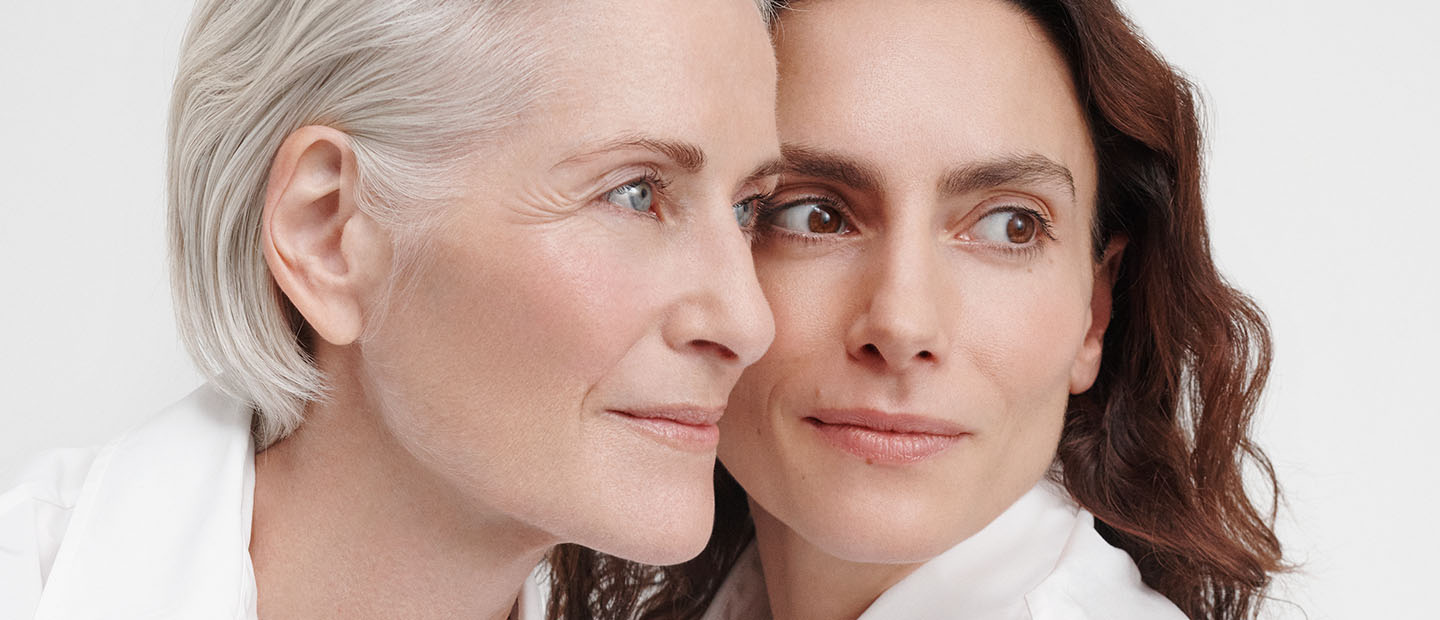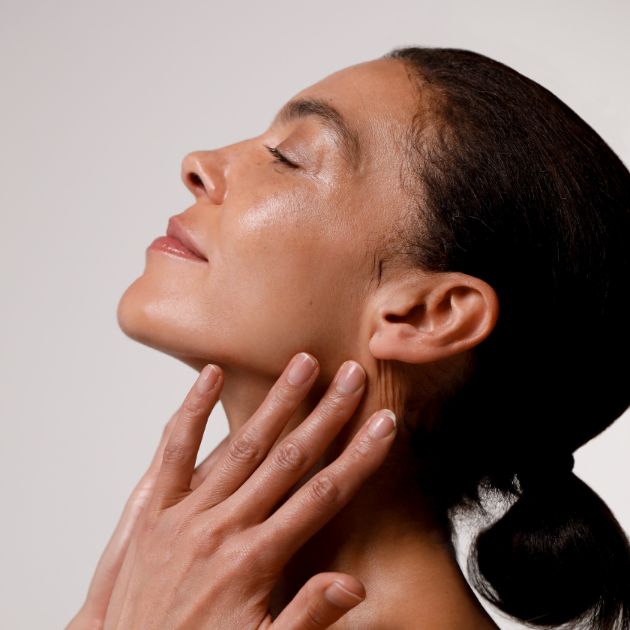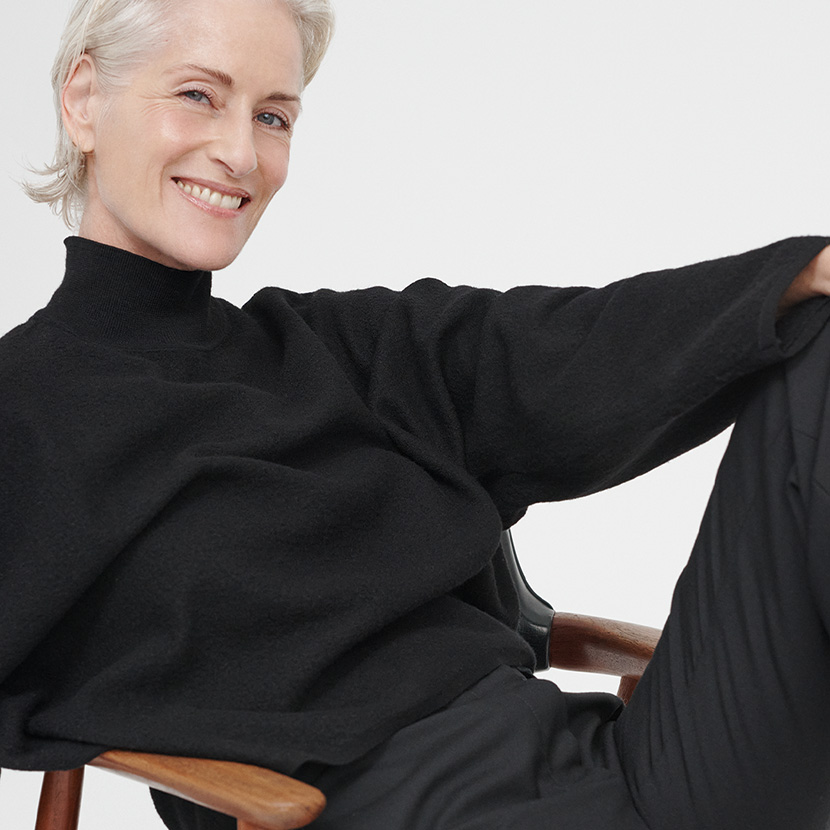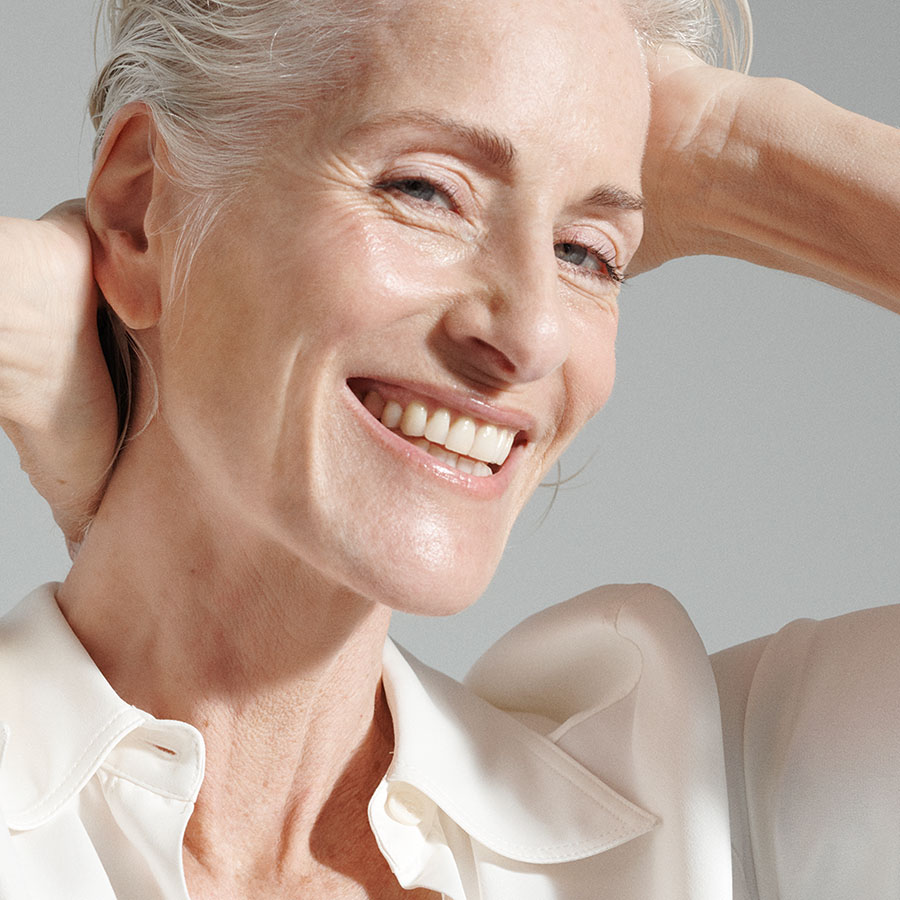The four phases of the menopause
The menopause—what's in store for me?
Hot flushes? Probably. Feeling invisible? Not necessarily. New-found freedom? Bring it on! Not all side effects of the menopause are tough. And for the ones that are, you can do something about them. How? What? Keep reading to find out.
The menopause is no longer taboo.
It’s like a little revolution: The menopause has transformed from a taboo into best-seller material. You don't have to go deep into a bookshop to find it, with many books to choose from, including ‘Menopausing’ by Davina McCall and Dr Naomi Potter and ‘A Better Second Half’ by Liz Earle. It is estimated that there are around 13 million people who are currently peri or menopausal in the UK, which is equivalent to a third of the entire UK female population. Lesson number one: You are not alone.
But what actually is it? The four phases of the menopause.
The term “menopause” refers to the transition period from the fertile years in a woman's life to the phase afterwards. The menopause is driven by hormones, but there’s a lot more to it than that. If you were to ask when the menopause starts and how long it goes on for, you might be surprised at the answer: the menopause can last from ten to 15 years. You can expect it from the age of 40. People often talk about four phases of the menopause, but it's actually just three phases plus a few days.
Phase 1: the pre-menopause (from your early to mid-40s)
Your ovaries slowly stop working and your hormone balance starts to change. Your menstruation may become irregular and you may get the first symptoms.
Phase 2: the perimenopause (from your mid to late 40s)
This phase describes the years (!) before and after your last period. During the first part of the perimenopause, you still get your period, but in the second half, menstruation becomes a thing of the past. At this point, you may notice your hormonal imbalance (as it leads to oestrogen deficiency). Most women have the strongest symptoms during the perimenopause.
Within this phase: the menopause (around your early 50s)
The menopause is your last period. That's why it only lasts a few days. You only realise it was your last period afterwards. If you have not had a period for a year (or two years if you're not yet 50), then you have already been through the menopause.
Phase 3: the post-menopause (potentially up to your mid-60s)
Your hormones gradually find a new balance (you now produce hardly any female sex hormones, so your testosterone becomes more noticeable). Many typical menopause symptoms subside; others remain. At this stage, women are more likely to develop osteoporosis than men.
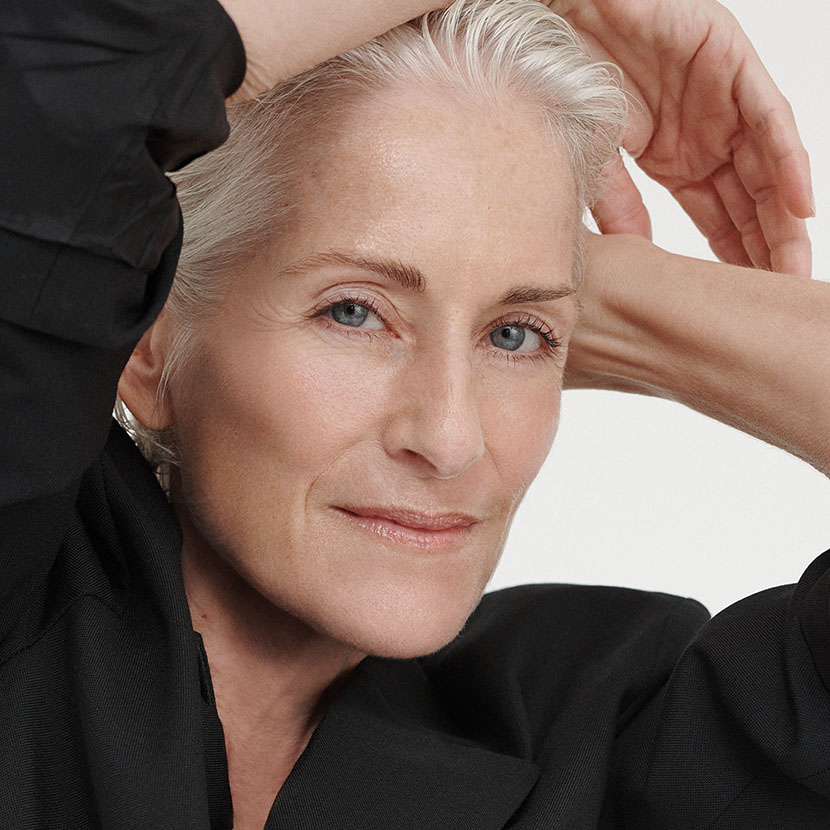
The menopause and typical symptoms.
A rule of thumb is that a third of women experience no symptoms during the menopause, a third experience mild symptoms, and a third suffer from strong menopause symptoms. These might include hot flushes, the classic symptom, which are usually accompanied by trouble sleeping, mood swings, bladder weakness and vaginal dryness. But unspecific symptoms, like muscle and joint pain, weight gain, headaches and poor concentration (even brain fog), are also among the typical menopause symptoms. As the menopause is insufficiently covered in medical training, many women are not given adequate advice from their doctor and initially think they are ill. However, the menopause is not an illness.
Ever heard of social symptoms?
Speechlessness, uncertainty, invisibility—these are also typical menopause symptoms. However, the more you see the menopause as a natural course of life, the less you will suffer from these phenomena, and the sooner the social climate will change. Miriam Stein didn't just give her book “Die gereizte Frau” (“The irritable woman”) the subtitle “What our society's got to do with my menopause” for nothing. She writes, “An ageing woman is not ill or crazy. It's not women who have to change, but the world around them.”
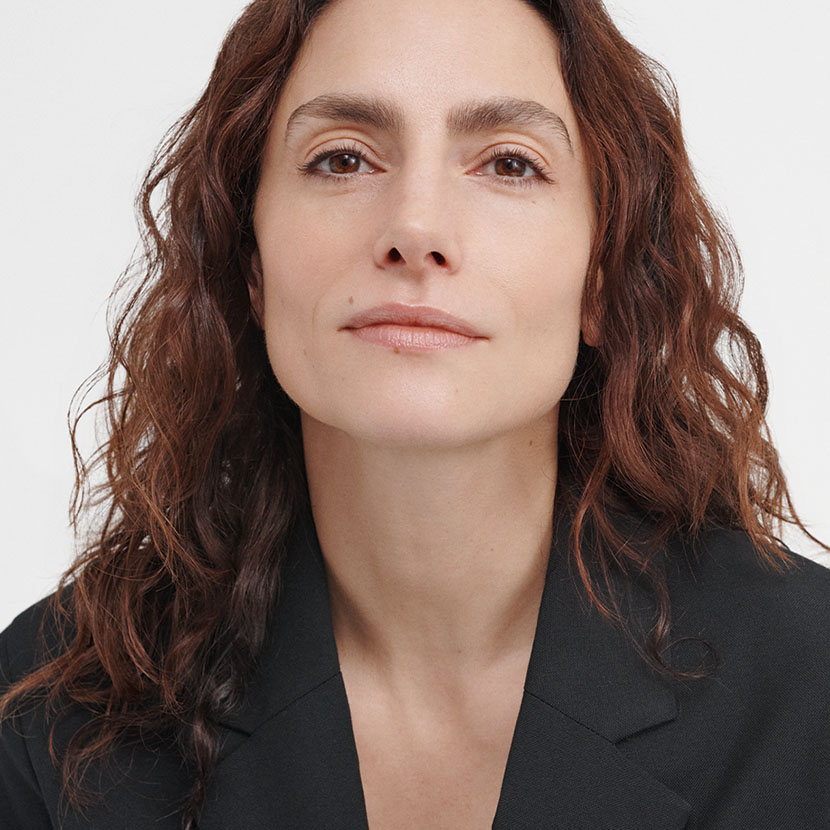
What helps with menopause symptoms?
Solidarity for starters. More and more women are tackling their menopause head-on, discussing not just their physical symptoms, but also their uncertainty about relationships or work—with questions about their purpose and goals. The menopause happens at a stage of your life when there’s a lot going on. Realising that and allowing yourself to talk about it with others and unite can feel really good. Of course, there are lots of other tips and tricks to help you take the menopause in your stride. Like these three, for example.
Three tips to get you through the menopause.
Exercise. Regularly: to feel good, move, strengthen your bones, and yeah, maintain a figure that makes YOU happy. You should focus on strength and endurance training, so you can join in on that beautiful hike, swing your wheelbarrow into the compost heap, and dance like no one’s watching.
Eat healthily: lots of vegetables and wholegrain, not much sugar, good oils (like high-quality olive oil). Plus lots of water and not much alcohol. Everything in moderation and not too late at night. “Spaghetti after 10 pm is probably not a good idea any more”, warns Dr. Susanne Hofmeister. The doctor and biography work expert has a very interesting view of the menopause. You can find her interview here.
Make plans: you have a whole stage of life ahead of you. How will you spend the time? Where? And with whom? Think about it carefully. And then make sure you stay fit enough to make your dreams come true... Never stop being adventurous and brave!

